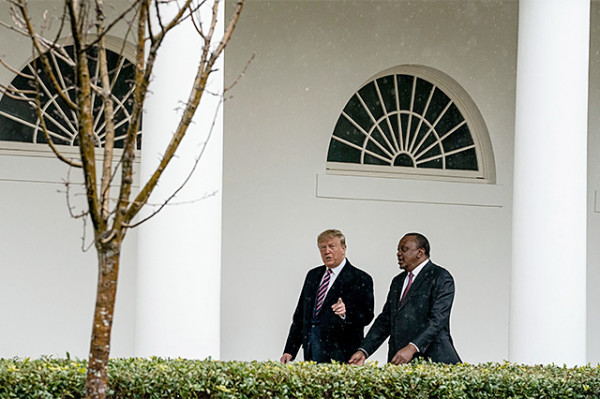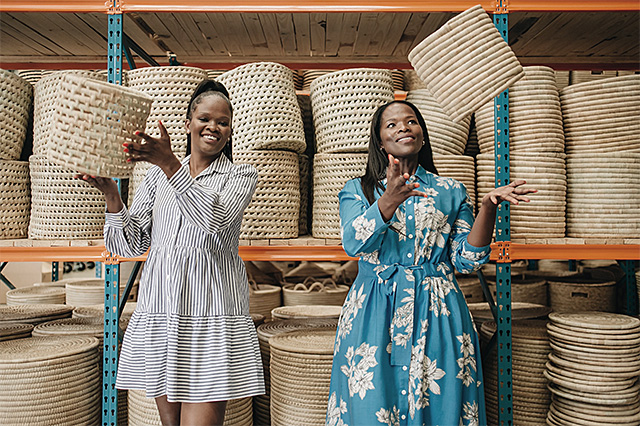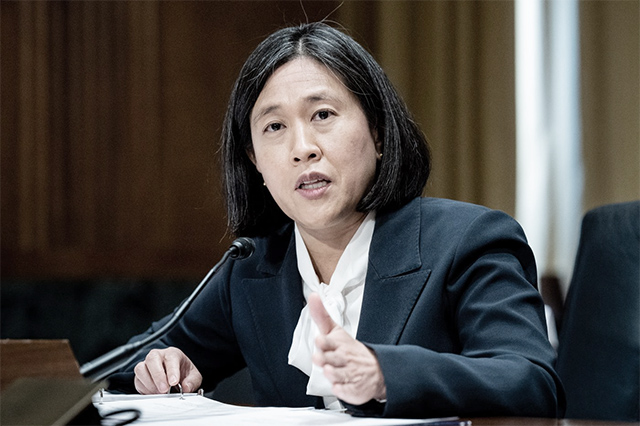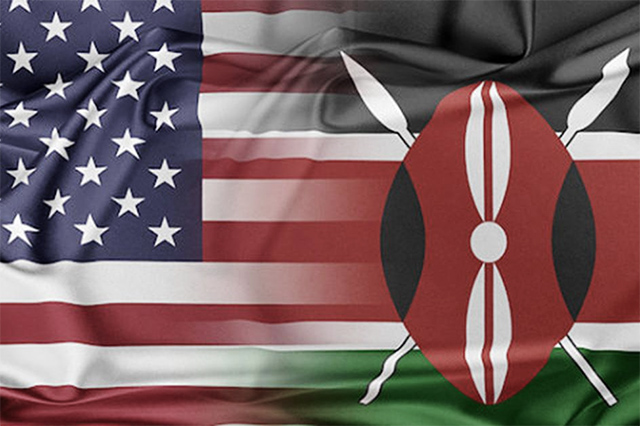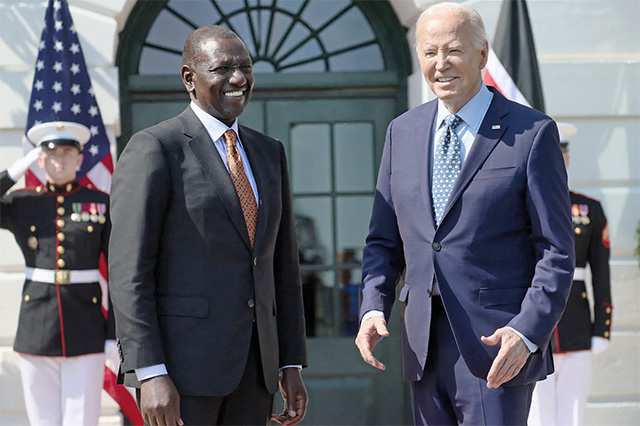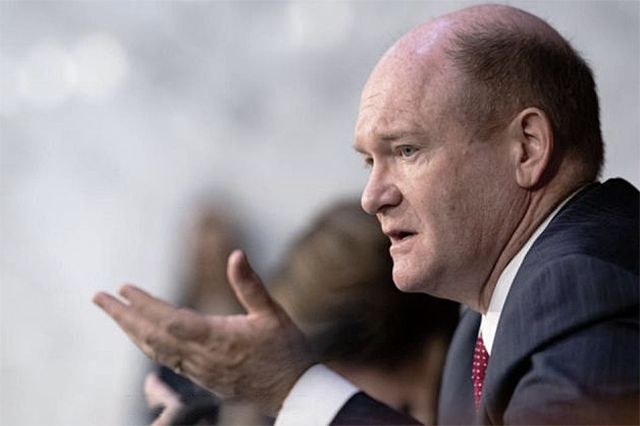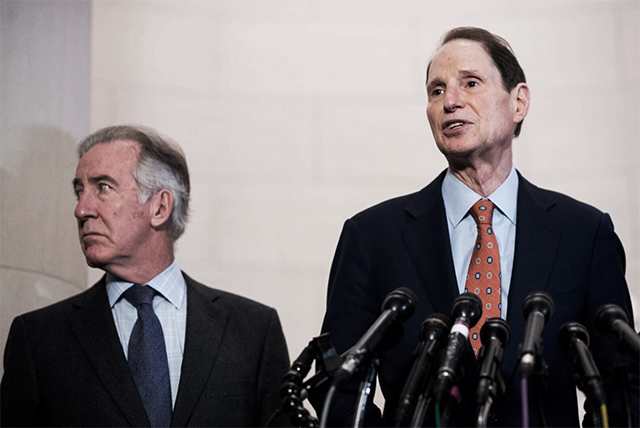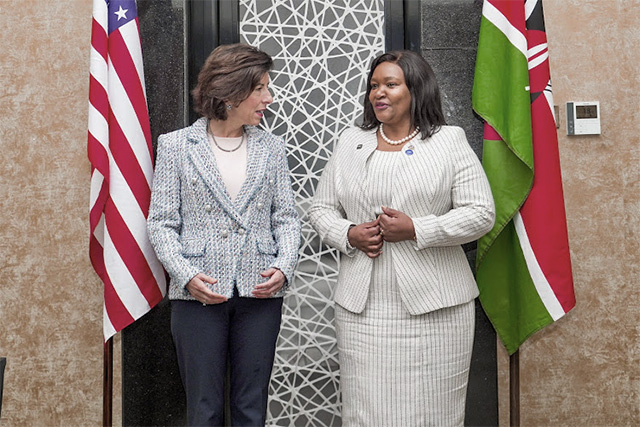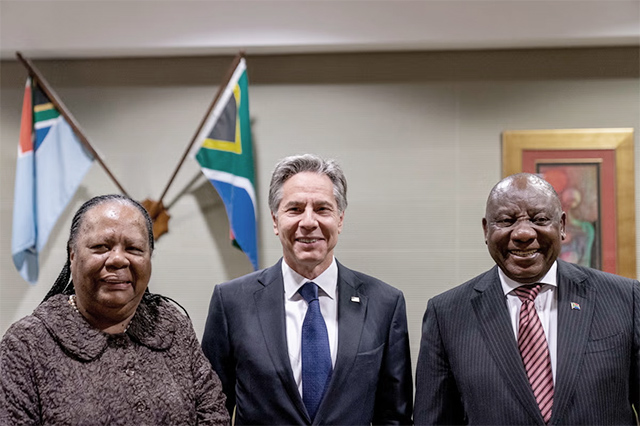Former US negotiator: US-Kenya deal could spur regional value chains
A trade deal with the U.S. could help both Kenya and its neighbors in the East African Community by fostering the
development of regional value chains, a former U.S. trade official tells Inside U.S. Trade.
“I think it’d be really fascinating as we go forward with this U.S.-Kenya FTA to see what’s going to be possible not just for Kenya but for other African countries in various sectors,” Florie Liser, a former assistant U.S. Trade Representative for Africa who now heads the Corporate Council on Africa, said in an interview on Friday.
While at USTR, Liser was the chief negotiator for a trade agreement between the U.S. and the Southern African Customs Union, talks for which ultimately stalled.
“They could actually develop an ecosystem where essentially you get all of these different input manufacturers to final products,” she said.
The U.S. and Kenya last week agreed to begin talks on a trade agreement that U.S. Trade Representative Robert Lighthizer has said could become a “model” for deals in Africa.
Liser said Kenya, in negotiating a trade deal with the U.S., could help other countries in the region by becoming a hub for exports to America. She cited the example of the apparel industry, saying Kenya could use an FTA to secure more buyers and then “link back to the cotton-to-apparel value chain in the region.”
“Tanzania has some factories that are also shipping to the U.S., but they’re smaller; Uganda has some factories that are shipping to the U.S., but they’re smaller; and there [is] a way through Kenya negotiating an FTA with the U.S. that they basically bring along their regional partners and get them into the value chain,” she said.
She pointed to SACU as another example, noting that South Africa has become an exporter of autos and that other countries in the bloc have become parts suppliers.
“I went to a factory in Lesotho that was producing the covers for the car seats,” she said. “Nobody would think ‘We’re going to produce autos, final assembly, in Lesotho,’ but Lesotho is taking advantage of what’s happening.”
Liser said that Kenya was wise to open trade talks with the U.S. given the importance of the Africa Growth and Opportunity Act to its U.S. exports (70 percent come in under the program) and the fact that there is no guarantee AGOA will be extended past 2025.
“Any smart country, in my opinion, would basically be like, ‘OK, we need to be looking at what we’re going to do to lock AGOA access in, or, better way to say it, lock in duty-free access to the huge U.S. market,” she said.
“All preference programs in the U.S. are sort of under the microscope,” she said, pointing to ongoing reviews of countries’ benefits under the Generalized System of Preferences.
“For the first time, I wouldn’t bet that when we get to end of this particular round of AGOA that it’s going to be extended,” she added. “If it is extended, it wouldn’t surprise me that there are changes that are made in terms of who are the beneficiaries, how they determine those beneficiaries.”
Liser said one of the lessons she drew from the negotiations with SACU was that the extension of AGOA benefits could be an impediment. “One of the incentives for them to sit down with us when they did was because they expected AGOA to end in 2007,” she said. “When we launched the talks in 2003, that’s kind of what was driving
South Africa and the others -- they were not sure at the time that we would be going beyond 2007, so it’s a little bit like we have now.”
“Once AGOA was extended ... then the talks ended,” she continued. “I remember the South African business community actually said, which I don’t blame them for, ‘Why should we pay for something you’re going to give us for free?’”
Still, Liser said the same might not hold for Kenya. “Even if they extended AGOA for another three years or five years, you’d still be right back where you were before as Kenya -- every year you’d be reviewed, every year there’d be the possibility that something could come up,” she said.
“If you’re ready to go to the next level, as President [Uhuru] Kenyatta said, you’re ready to take the training wheels off your bike and ride on your own, just because somebody says, ‘Oh, OK, I’ll let you use the training wheels for another year,’ you know, no. I actually want to ride the bike without the training wheels, take them off.”
Liser said that members of the Corporate Council on Africa were looking at opportunities in Kenya in a range of sectors including construction and health care.
One of the other lessons Liser said she learned from the SACU talks was the need to understand the commitments that countries have made as part of their regional economic blocs. For example, she said, there was no SACU-wide approach to government procurement, services or investment.
“One of the things that we learned along the way, and I still think we did the right thing in launching those talks, is they would say, ‘Well we’re not going to give you something in these talks that we haven’t even agreed to give each other yet,’” she said.
“So here’s where I think doing our homework, knowing what the EAC is doing, what the customs union does, what are the areas where they’ve made the greatest progress and then building on that, right, because if they haven’t done certain things and we require that in our FTA, it could make it difficult,” she said.
Liser said she also would advise U.S. negotiators to keep Kenya’s East African Community secretary and the EAC secretariat appraised of the negotiations and brief them before and after negotiating rounds.
Some House Democrats have called the U.S.-Mexico-Canada Agreement the “floor” for the future deals. In a statement following his meeting with Kenyatta, House Ways & Means Chairman Richard Neal (D-MA) said a Kenya deal should “demonstrate a commitment to the enforcement of strong worker rights, environmental protections, and good governance.”
Asked if Kenya would have difficulty meeting the labor or environmental standards in USMCA, Liser noted that the country had expressed some concern about climate change. While climate is not addressed in USMCA, Liser suggested Kenya's openness on that front might suggest a willingness to consider stronger environmental disciplines. As for labor, she said there was a time when Kenya would have had difficulty meeting high labor standards, but added that it might not be an issue now given the large number of factories in the country producing for U.S. companies, citing the example of a factory in Mombasa she visited that produced uniforms for McDonalds.
“They can’t afford to not provide the highest level of labor standards in their factories and if they want to get more investment and more factories, maybe it won’t be an issue in terms of what they’re willing to negotiate in a labor chapter.”
As for the future of AGOA, Liser said she supported the extension of the program in some form. “I’m a huge fan of AGOA because I’ve seen for myself what it can do,” she said. “I see the people that it impacts, I see ways that it has changed, and it continues to change both the diversity of products that Africa can send, the value addition that they need.”
However, she said, if the program remains in place too long, it could become detrimental. “If you fall and you fracture your leg and you put a cast on it, initially you have to have that cast for the healing to take place and you use your crutches and all of that,” she said. “But if you leave that cast on too long, then your leg starts to shrivel.”
“It’s painful, but if you don’t go through that to then re-strengthen your leg then it kind of cripples you,” she said.
Liser said the U.S. should continue to provide capacity building to African countries and support their small and medium-sized businesses as well as women-owned and youth-owned businesses.
The U.S. should be a partner “helping you to ride the bike without training wheels, helping you once you have the cast off to strengthen your legs so you can walk and then eventually run,” she said.
“That’s what I think the U.S. should be doing and I think U.S. businesses should support,” Liser stated.


